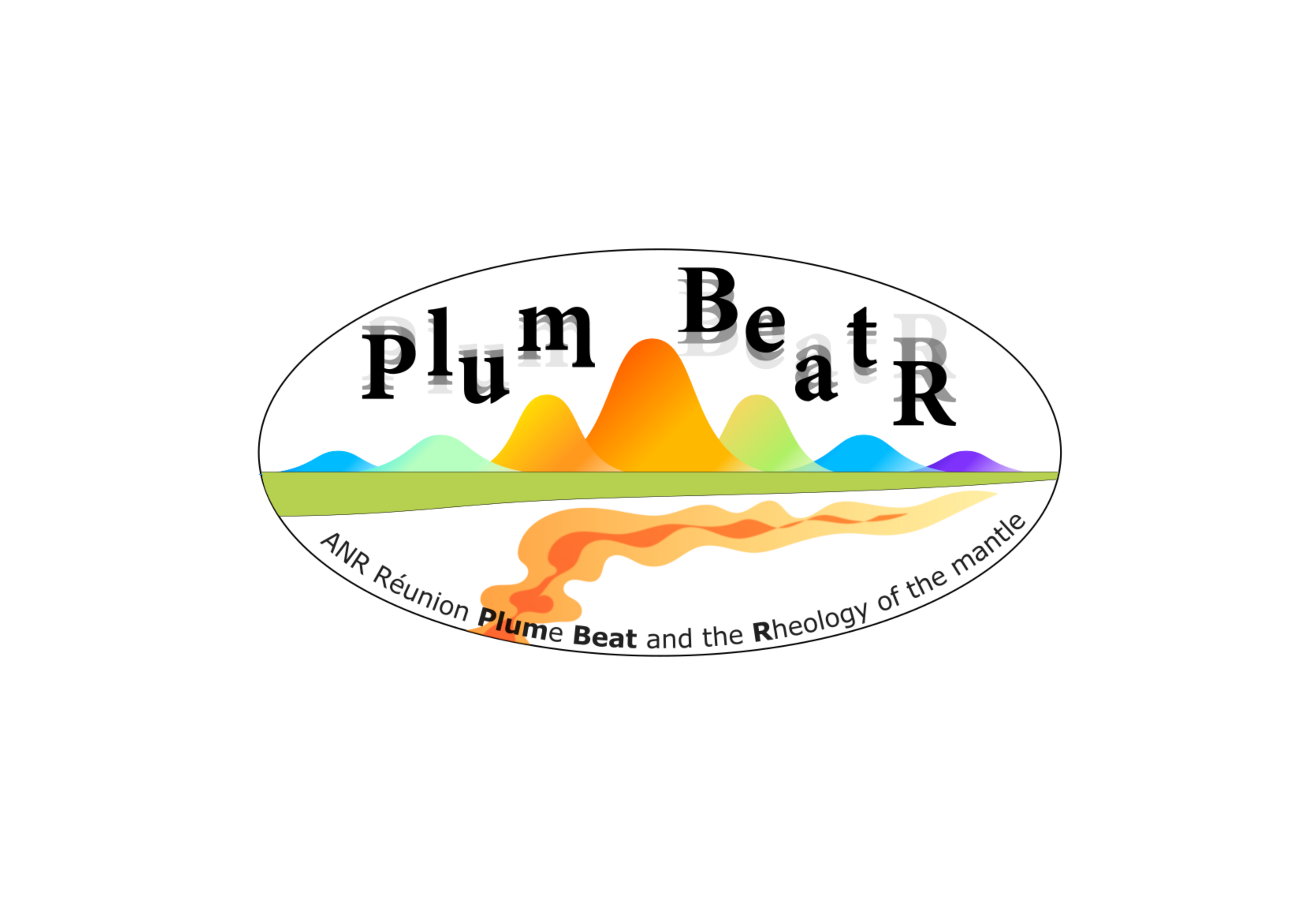PhD offer in mantle geodynamics
Deadline : 15th June 2024
Suject: Influence of rheology and partial melt propagation on the Réunion mantle plume short-period pulsations
Supervision : Maëlis Arnould, Jean-Philippe Perrillat, Shi Joyce Sim

Description of the offer:
Terrestrial hotspots exhibit fluctuations in magma emission rates over periods of 1 to 20 Ma, indicating changes in magma production within the underlying mantle plumes. The periodicity of these fluctuations indirectly helps to determine the mechanisms of magma production, and to better understand the interactions between the plumes and the adjacent mantle.
Recently, synchronous fluctuations in magmatic activity have been identified on two Réunion hotspot islands, La Réunion and Mauritius, with a period of ~400 ka over the last three million years. This period is an order of magnitude shorter than those identified on other terrestrial hotspots (1-20 Myr). Given the distance between the two islands and the short-period of the pulse, it is likely to be the result of asthenospheric or deeper geodynamic processes.

Figure: a. Snapshot of a 3D spherical-patch model of whole-mantle convection with plate-tectonics. Mantle plumes are highlighted by the yellow isotherm (adapted from Arnould et al., 2020). b. Two-phase flow model showing the development of porosity waves in a mid-oceanic ridge context (Sim et al., 2022).
The goal of the PhD thesis will be to explore the roles of both mantle rheology and partial melt propagation properties on the generation of short-scale pulsations of mantle plumes. To do so, the successful applicant will use two complementary numerical tools: the StagYY code (Tackley, 2000) which will allow to model plumes within their environment at a global scale (Fig. a), and the code TerraFERMA (Wilson et al., 2017, Fig. b), which will be adapted in order to model two-phase flow dynamics within a plume. With both methods, the aim is to compare the periodicity of model plume pulses to new observations for the Réunion hotspot obtained during the Plum-BeatR ANR project. This interdisciplinary PhD subject will allow us to gain valuable knowledge on the ability of mantle plumes to generate magmatic fluctuations, as observed at the Réunion hotspot, and thus to constrain mantle rheology and dynamics.
Supervision: The PhD student will be hosted in Lyon at the LGL-TPE laboratory, and co-supervised by Dr. Maëlis Arnould and Dr. Jean-Philippe Perrillat. One exchange period is planned in Georgia Tech to work with Dr. S. Joyce Sim on two-phase flow models. The PhD student will benefit from interdisciplinary interactions with all members of the Plum-BeatR project throughout the PhD, and particularly with the project leader, V. Famin (IPGP, Univ. Réunion).
Setting: The PhD candidate will mostly work as part of the LGL-TPE, on the University Lyon 1 site. The LGL-TPE is a very dynamic scientific environment, with a wide spectra of research topics in Earth Sciences, ranging from paleontology and paleoclimatology to planetary sciences. The Earth and Planets team within the LGL-TPE brings mineralogists, geophysicists and geochemists together to tackle all problems related to planetary interior structure, evolution and dynamics, using multidisciplinary approaches. The research of the successful candidates will be supported by the ANR-funded project Plum-BeatR. This support includes computer equipment, travel to conferences, and travel to visit research collaborators.
Start-date: before the end of 2024, ideally September/October 2024.
Duration: 3 years (the standard PhD duration in France)
Monthly-salary: 1,690–1,850 € before taxes. Possibility to apply to a complementary teaching activity at University Lyon 1.
Requirements: A solid training in geophysics and numerical modeling, excellent writing skills and good communication skills in English. Experience in scientific programming will be considered as a plus. Strong motivation and interest in multidisciplinary interactions with the other Plum-BeatR project members is expected.
Deadline: Applications received until 15th June 2024 will receive full consideration (deadline extended!). Later applications will be reviewed until the position is filled. Specific care about equality, diversity and inclusion will be ensured during the evaluation process of all applications.
The following application materials should be sent to maelis.arnould@univ-lyon1.fr:
- A curriculum vitae, including contact information for at least two references
- A cover letter (2 pages max), including statement of research experience and interests
- Academic transcripts and certificates
Contacts:
- Maëlis Arnould, PhD supervisor and project co-leader, LGL-TPE, Lyon, France, maelis.arnould@univ-lyon1.fr
- Jean-Philippe Perrillat, PhD co-supervisor, LGL-TPE, Lyon, France, jean-philippe.perrillat@univ-lyon1.fr
- Shi Joyce Sim, PhD co-supervisor, Georgia Tech, USA, jssim@eas.gatech.edu
- Vincent Famin, Project leader, Géosciences Réunion, Univ. Réunion/IPGP, France, vincent.famin@univ-reunion.fr